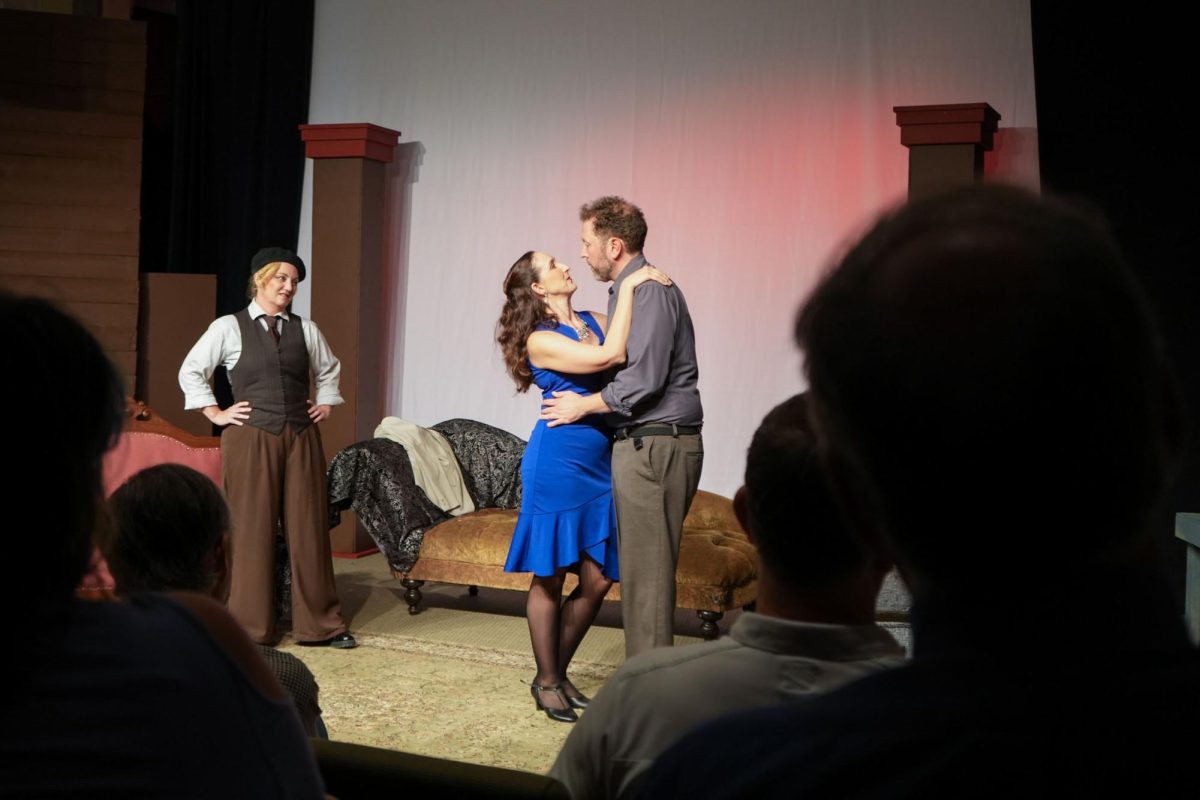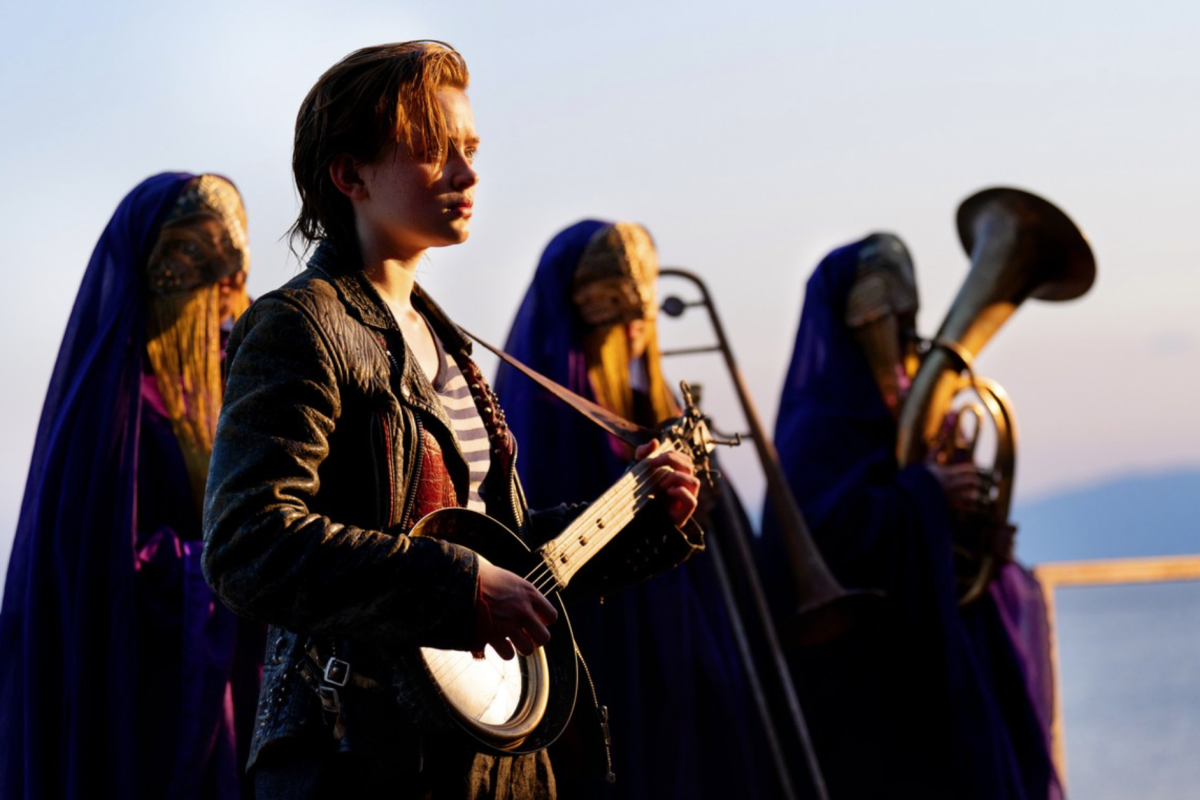French chanson plays inside a Presbyterian church as the guests slowly fill up one of the rooms. They are here to see Austin City Theatre’s production of Jean-Paul Sarte’s “No Exit,” an existential play first performed on 1944 in Paris and originally translated by Paul Bowles.
In “No Exit,” one must abandon the idea of Satan, torture chambers and Hades’ gated labyrinths as three strangers are locked in a drawing room when they enter the afterlife. Instead, the vision here is cruelly simple and well-carved: Hell is other people.
Director Jeff Hinkle does justice to the drama, titled “Huis Clos” in its native French. Warping eternity into one act lasting just over an hour, Hickle’s danse macabre spills with ghastly irony as the audience politely chuckles at an autobiography of their own fears and self-doubt.
The performances of Garcin’s (Darren Scharf) guarded contemplation, Estelle’s (Alexandra Russo) neurotic, self-absorbed twitches and Inez’s (Dawn Erin) smirking eyebrows are like humanity looking at itself in the mirror. They are familiar, diabolical and performed with great study of characters condemned to perceiving themselves through the eyes of each other for eternity.
The production proves shaky in some parts, with out-of-range volume in the few musical audio transitions between monologues. However, the script sticks well, with self-evident acting from the four-person cast (which includes Russo who graduated with a theater degree from UT) and their well-received delivery. Erin’s solo additionally brings a brilliant punch of dark humor.
Ripe with pauses, the play flows on existentialist dialogue. The actors look past rows of audience and over the top of their heads with infrequent eye contact as they canonically search the room for what is being said about them back on Earth. Their characters then rotate between sofas in a coordinated choreography that guides the viewer’s pupils and mind alike.
Not a spit in the face (a maneuver actually done by one of the characters) but an absurdist ringing in the audience’s ear, the play doesn’t hit its audience over the head with heavy messaging. Estelle, a character who constantly seeks approval as she reapplies her lipstick, searches for her own reflection in Inez’s eyes. “I feel so empty, desiccated — really dead at last. All of me’s here, in this room,” Inez says as her empty room on Earth is leased to another man.
Sickening, thudded and humorously dark, Hinkle’s direction of “No Exit” serves a performance both striking and paralyzing.
4½ existential dreads out of 5














